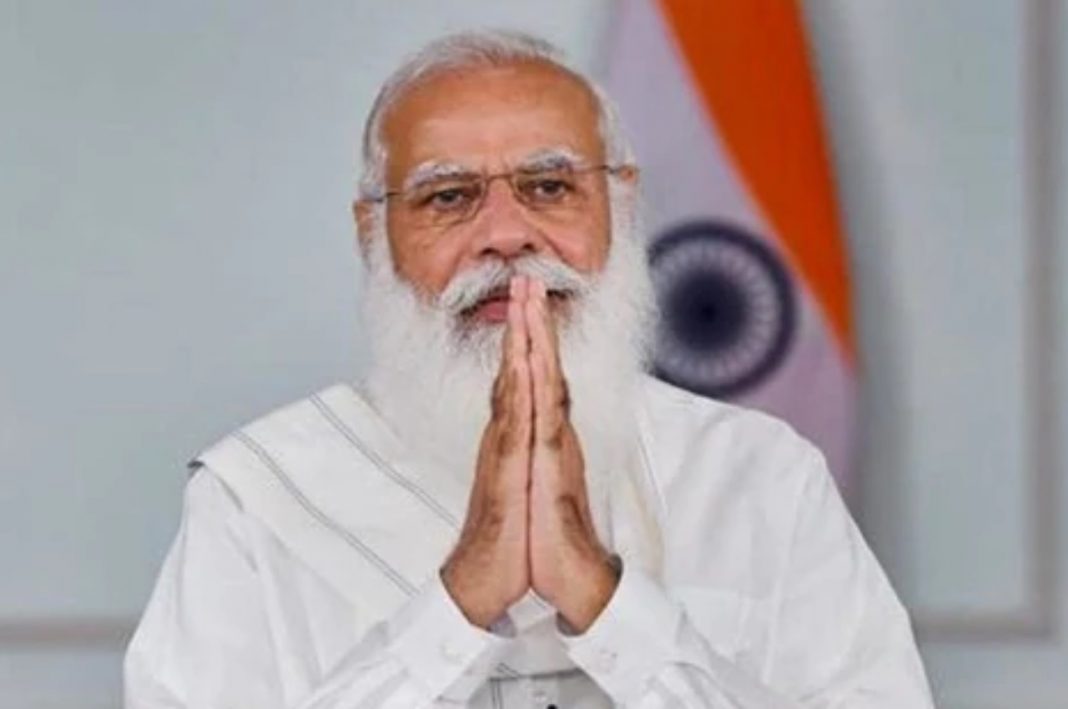New Delhi: Prime Minister Narendra Modi paid his tributes to freedom fighters Bal Gangadhar Tilak and Chandra Shekhar Azad on their birth anniversary and recalled their contributions to India’s freedom movement on Friday.
“I bow to the great Lokmanya Tilak on his Jayanti. His thoughts and principles are more relevant than ever before in the present circumstances when 130 crore Indians have decided to build an Aatmanirbhar Bharat that is economically prosperous and socially progressive.” tweeted the Prime Minister.
“Lokmanya Tilak was a firm believer in Indian values and ethos. His views on subjects such as education and women empowerment continue to motivate several people. He was an institution builder, nurturing many top-quality institutions which have done pioneering work over the years,” .
“Bal Gangadhar Tilak, a teacher, independence activist and social thinker, was the first leader of India’s independence movement. Regarded as the “Maker of Modern India” by Mahatma Gandhi and “The father of the Indian unrest” by the British, Tilak was one of the strongest advocates of Swaraj or self-rule and is seen as the first political leader who appreciated the importance of identity issues. One of his most famous quotes is “Swarajya is my birth right and I shall have it!” tweeted Modi
DON'T MISS
“Remembering the valiant son of Bharat Mata, the remarkable Chandra Shekhar Azad on his Jayanti. During the prime of his youth he immersed himself in freeing India from the clutches of imperialism. He was also a futuristic thinker, and dreamt of a strong and just India,” PM Modi tweeted.
Bal Gangadhar Tilak born on 23 July, 1856, as Keshav Gangadhar Tilak. He was an Indian nationalist, a teacher, and an independence activist. Tilak was the first the Indian independence movement leader. He was called the “The father of the Indian unrest” by the British colonial authorities He was also conferred with the title of “Lokmanya”, which means “accepted by the people as their leader”. Mahatma Gandhi called him “The Maker of Modern India”.
Chandra Shekhar Azad was born in 1906, he was a part of Mahatma Gandhi’s non-cooperation movement.
In September 1928, Azad and Bhagat Singh secretly organized, along with other revolutionaries, the Hindustan Republican Association as the Hindustan Socialist Republican Association to achieve their primary aim of an independent India based on socialist principle. The insight of his revolutionary activities are described by Manmath Nath Gupta, a fellow member of HSRA in his numerous writings. Gupta also wrote his biography titled “Chandrashekhar Azad” and in his book History of the Indian Revolutionary Movement he gave a deep insight about Azad’s activities, his ideologies, believes and the HSRA.
Associated with a string of revolutionary incidents to target the colonial British regime, he pledged to never be captured by the police and remain free. Azad died at a young age of 24 as he shot himself after being surrounded by the police in Uttar Pradesh’s Allahabad, now known as Prayagraj, in 1931.



